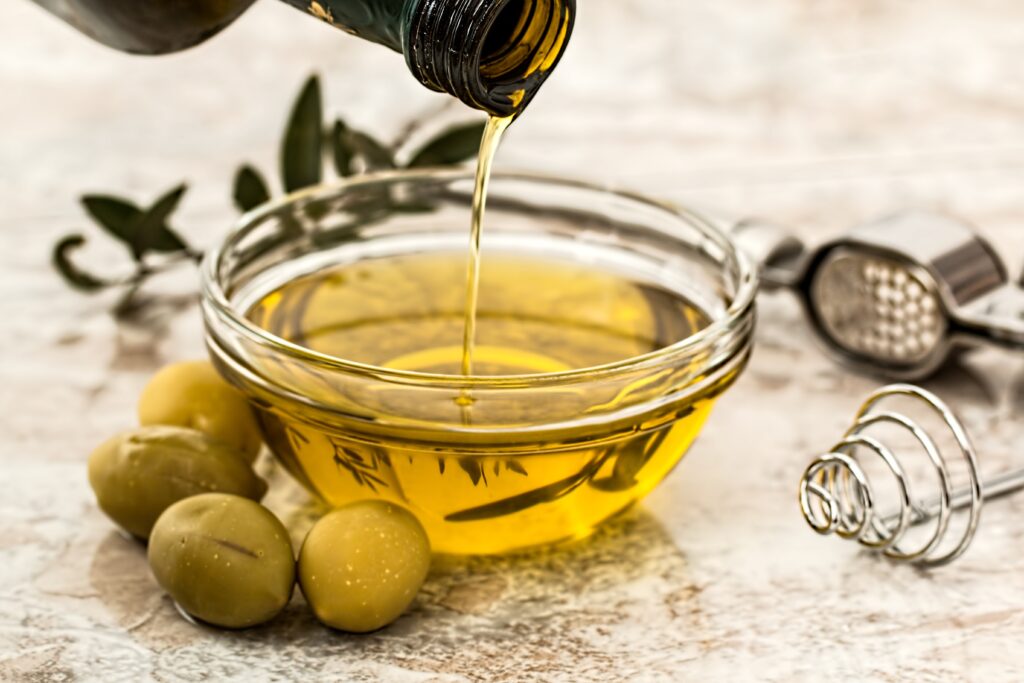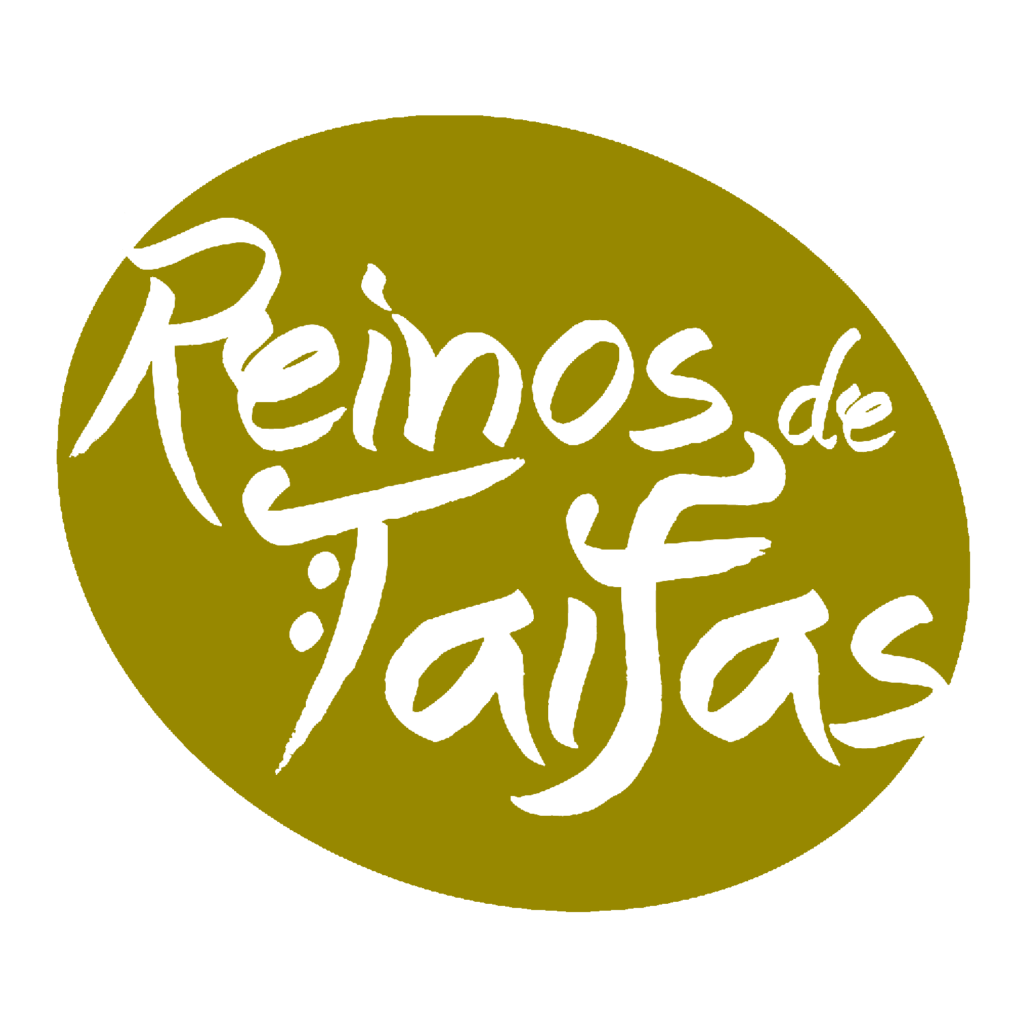EVOO stands for Extra Virgin Olive Oil, and it is:
- HEART PROTECTOR
- VEGAN FRIENDLY
- NO TRANS-FAT
- GLUTEN FREE
- SUGAR-FREE
- RAW, NATURAL FOOD

Which olive oil is considered the highest quality?
Extra virgin olive oil is the highest-quality olive oil available. No chemicals are added during the extraction process. Therefore, the oil contains the healthiest maximum nutrients and retains natural flavours.
EVOO has become a vital ingredient globally due to its increased accessibility and growing awareness linked to the Mediterranean diet.
History
The olive tree was first planted in Ancient Iran and Mesopotamia about 5000 years ago, and its fruits have been used since then. However, who was the first to learn to extract the oil from the fruit is uncertain.
Olive cultivation was later spread to Egypt and Phoenicia. Ancient Egyptians used the oil for many purposes, such as religious ceremonies, diet, medicine, and beauty. Phoenicians later introduced olive farming to the Mediterranean region. They used olive oil for trading. Later, the Romans produced olive oil on a bigger scale during the Roman Empire.
The Arabs later brought olive varieties to Spain, spread olive cultivation, and improved olive farming techniques. The Spanish language has some Arabic influence as “aceite,” which means oil in Spanish, is derived from the Arab word “azzait”, which means olive juice.
Later, after discovering America, the Spanish introduced olive trees and vines to the area. Olive tree cultivation spread to South Africa and Australia during the 20th century.

Production process
Harvesting olives is one of the most crucial steps. Producing quality EVOO dramatically depends on the ripeness of the olive fruit and the time it takes to pick and extract the oil. The whole process must be done on the same day.
Other factors influence the taste, aroma, and the overall quality of the EVOO:
- Olive variety/cultivar: Many olive varieties worldwide, each with a unique taste.
- Environment: Soil, climate, and altitude also influence the taste and character of the olives.
- Production technique: Every step, from collecting to storing olive oil, is important to achieving quality EVOO.
Types of EVOO
Apart from the types of olive oil (e.g. refined vs. extra virgin), there are two types of EVOO on the market: monovarietal and blended (also known as coupage).
Monovarietal EVOO is made from 100% of the same olive type. As mentioned before, each olive variety has its unique taste and aroma. Spain is known to grow about 262 olive varieties. This means there could be 262 different ‘flavours’ on the market to choose from!
Blended EVOO is made from different olive varieties. You can find many different blended EVOO products on the market, as companies make their products unique by doing this.
It is worth mentioning that you can create your unique blend at home. You can customise your blend by purchasing different monovarietal EVOOs and mixing them to your preference. Begin by combining two varieties at 50% each and tasting the result. Experiment by adding more of either one or introducing a third monovarietal EVOO!
Health benefits of EVOO
Many studies have been conducted over the years, and it has been well-established that extra virgin olive oil contains healthy fats and high polyphenols, which are beneficial for fighting against chronic diseases. Here are some health advantages found in consuming it:
- Regularly including extra virgin olive oil in your diet lowers the risk of heart disease, including cholesterol, blood pressure, and stroke.
- Reduce the risk of gastrointestinal diseases and promote the digestive system’s functioning.
- Contains antioxidants and anti-inflammatory effects that reduce the risk of diseases such as cancer and inflammation from arthritis and bowel diseases.
- Extra virgin olive oil is an excellent ally against diabetes by reducing insulin resistance.
- Brain: Some research has shown that extra virgin olive oil may positively affect brain health, which ageing could affect.
Drinking olive oil benefits
Is extra virgin olive oil good to take daily?
The answer is yes!
PREDIMED (PREvención con DIeta MEDiterránea) conducts clinical trials in Spain on foods that can prevent primary diseases such as cardiovascular disease. One study was conducted on how beneficial EVOO is for health. Over the years, thousands of participants participated in this study and followed a Mediterranean diet supplementing with 50ml of extra virgin olive oil daily, which is 5 tablespoons. Another trial was conducted where participants consumed 40ml a day. The results from these studies have proven that the participants had a lower risk of diabetes, had lower blood pressure and showed little signs of depression. Overall, a low risk of cardiovascular disease was shown.
Other EVOO uses
Today, olive oil is popular in the beauty industry. It is commonly found in cosmetics, such as moisturisers, cleansers, and hair and skin care products.
Extra virgin olive oil for skin
Extra virgin olive oil has been a skincare staple for centuries, cherished for its deep hydration and protective properties. Rich in antioxidants, vitamins E and K, and healthy fatty acids, it helps moisturise dry skin, reduce wrinkles and combat free radical damage that contributes to ageing. Its anti-inflammatory benefits soothe irritation, sunburns and eczema.
In ancient times, the Greeks used it to clean and moisturise skin and as massage oils. The Egyptians used it for lighting, religious ceremonies, and beauty. The Romans used it in cosmetics and perfumes.
It remains a key ingredient in Mediterranean and Middle Eastern skincare routines, often applied as a moisturiser, makeup remover or exfoliating scrub. Studies confirm extra virgin olive oil’s ability to improve skin elasticity and repair damage, making it a trusted natural remedy for a healthy, radiant complexion.
Extra virgin olive oil for hair
EVOO has been used for centuries as a natural hair treatment. It is packed with vitamin E, antioxidants, and healthy fats and helps moisturise dry hair, reduce frizz, and prevent breakage. It also soothes dry scalp, reducing dandruff and irritation.
Regular use of EVOO can improve hair elasticity, making strands more damage-resistant. It works as a pre-shampoo treatment, deep conditioner, or scalp massage oil to stimulate circulation and encourage healthy growth. It helps seal moisture and reduce further damage when applied to split ends.
Historically, civilisations like the Ancient Egyptians, Greeks, and Romans used olive oil in hair care for its nourishing and protective properties. Today, it remains a staple in natural beauty routines. EVOO is a powerful, all-natural remedy for strong, shiny, and healthy hair, whether alone or mixed with ingredients like honey or essential oils.
Extra virgin olive oil calories
Extra virgin olive oil contains 884 kcal for every 100 g consumed.
Mediterranean cuisine/diet
People who follow a Mediterranean diet live in countries with olive trees and around the Mediterranean Sea. Mediterranean cuisine generally includes many fruits, vegetables, legumes/beans, nuts, and seeds, but a few processed meats/foods.
One common ingredient in Mediterranean cooking is extra virgin olive oil, a healthy source of monounsaturated fat. Studies have shown that the mortality rate from heart disease is two to three times lower in the Mediterranean region compared to Northern Europe and the USA. However, times have changed, and not everyone in the Mediterranean adheres to this diet. Many people worldwide are still discovering ways to live healthier and are interested in the Mediterranean diet.
Spanish gastronomy with EVOO:
Olive oil is so frequently consumed in the Spanish diet that it has become almost inseparable from every person’s life. It is often used at breakfast, such as olive oil on toast with fresh minced tomato and salt. It is also utilised in main dishes like fish with vegetables and potatoes with meat. One might encounter snacks such as potato crisps fried in olive oil. Enjoying a coffee with a muffin made from olive oil is not unusual.
Spanish olive oil production
Varieties and regions:
Spain cultivates various types of olives. As mentioned before, Spain has about 262 olive varieties. The number of olive varieties contributes to the uniqueness and diversity of Spanish olive oils. Some popular cultivars include Picual, Arbequina, and Hojiblanca.
It is worth noting that some olive trees are easier to harvest than others. Some olive variety produces more oil than others. Therefore, some olive trees are cultivated mainly for olive consumption rather than EVOO or even for both.
Tradition and trends:
In the past, Spanish farmers prioritised technique improvement for better EVOO quality over marketing, resulting in merchants buying and exporting under different private labels rather than recognising that the oil is made in Spain. Recently, Spain has been heavily promoting its olive oil under the “Made in Spain” brand, which has gained recognition and appreciation for Spanish olive oils in the global market.
Spain’s olive oil exports:
Spain exports olive oil worldwide, including Europe, the United States and Asia. To ensure the integrity of olive oil production and maintain consumer trust worldwide, Spain implements quality control measures to prevent misrepresentation and fraudulent practices.
Conclusion
From ancient civilisations to modern times, EVOO has been appreciated for its rich flavour and versatility. It is so easy to incorporate high-quality EVOO into your daily diet. Furthermore, EVOO has numerous health benefits, such as heart health, reducing inflammation, and supporting overall well-being.
